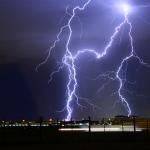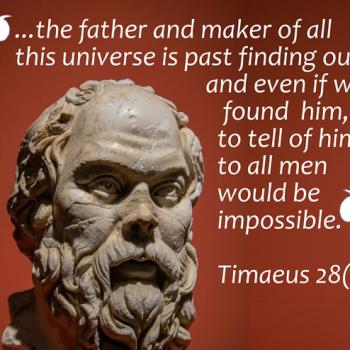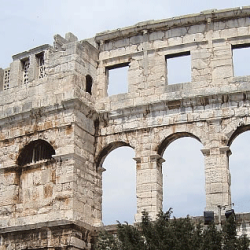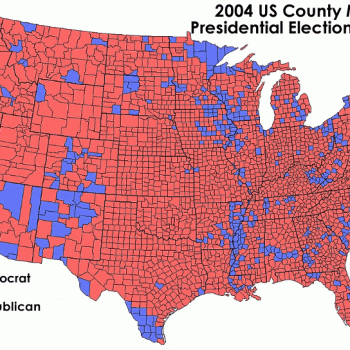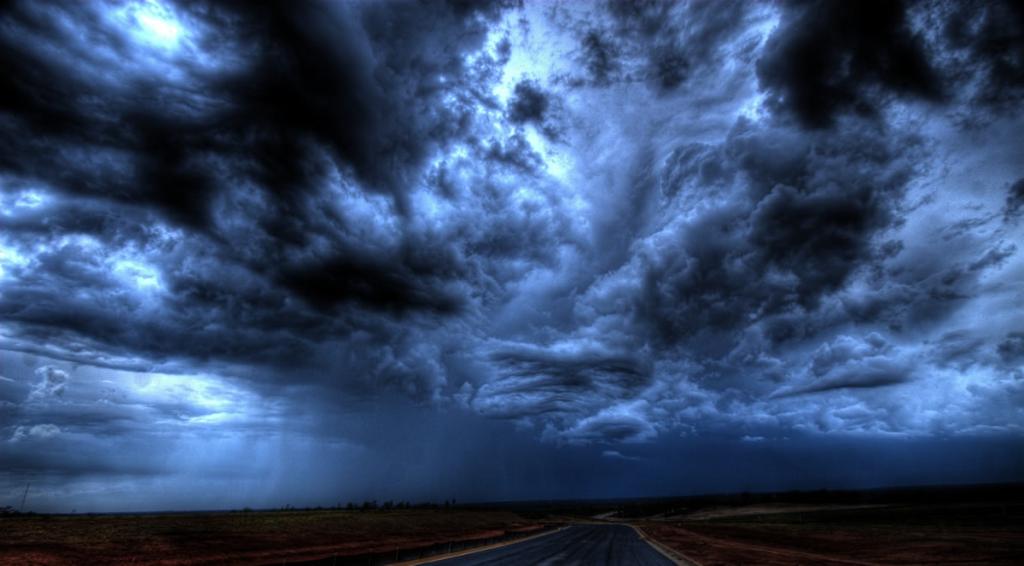 The Wrath of God is sometimes depicted by dark and ominous clouds.
The Wrath of God is sometimes depicted by dark and ominous clouds.
Photo: Pexels.com | Pixabay
The Words of Jesus…
and the New Testament Writers
In Part 1 we read about “the wrath of the Lamb” in John’s Revelation.
Jesus is the Passover Lamb and in the Revelation He shares in displaying God’s wrath.
In this section I want to share from the New Testament (NT) without using the apocalyptic book of Revelation. First I will focus on the words of Jesus.
On five separate occasions Jesus uses the famous saying “there will be weeping and gnashing of teeth.” Two more times a parable or this statement of Jesus is simply being repeated, so there are 7 such references.
In Matthew 8 Jesus heals the sick servant of a Roman centurion and comments on the faith of the Roman. Then Jesus says,
11 I say to you that many will come from the east and the west, and will take their places at the feast with Abraham, Isaac and Jacob in the kingdom of heaven. 12 But the subjects of the kingdom will be thrown outside, into the darkness, where there will be weeping and gnashing of teeth.
[NIV, red emphasis added to the text]Do Not Miss the Context
I read one writer claiming that God does not exhibit wrath who argued that Jesus is not describing “weeping” as remorse for rejection, but remorse that they disappointed God. But look at the other descriptions in this collection of “weeping” texts:

– “gnashing of teeth”
– “cut into pieces”
– “a blazing furnace”
This description by Jesus certainly sounds like these people have been rejected. They are not asked to leave; the door is not closed with an apology. They are “thrown outside into the darkness.” These are sobering passages.
In Matthew 13 the parable states that “good seed” is harvested and “weeds” are thrown into a blazing fire. Jesus says that the “weeds” are the people of the “evil one.”
In Matthew 24 the “wicked servant” is “cut to pieces” and assigned a place “with the hypocrites.”
A few caveats are needed:
1. We need to be careful forcing parables into theological frameworks.
A parable is meant to give an overarching lesson, so we have to be careful not to take them literally at every point.
2. I agree with NT Wright that in the first instance these parables of Jesus are speaking of the coming destruction of Jerusalem in 70AD. These texts might also be pointing to the “end of the world.” [1]
3. Jesus uses very strong language because He is trying to make His point VERY clear to His audience. Again, I agree with NT Wright that many of these dark warnings are directed at the Pharisees and teachers of the law. Jesus wants to make sure the religious leaders do not miss His point.
More from Parables
The parables where Jesus speaks of “weeping and gnashing of teeth” are just one example in His teachings. There are other parables that seem to support some kind of final judgment:
– the unmerciful servant (Matt 18) who refuses to forgive a debt and is thrown into prison and tortured.
– sheep and goats being separated (Matt 25) when Jesus will say to some “depart from me.”
– the great banquet (Luke 14) where those who were initially invited “will not taste my banquet.”
We will see similar use of stern language in the post-apostolic writers indicating that the reading of wrath and judgment continues AFTER the destruction of Jerusalem. This indicates that the words of Jesus were interpreted in the post-apostolic age to mean more than the immediate destruction of the Temple.
I am moving quickly past the words of Jesus without mention of “few will find it” and the “house built on sand” and others that seem to imply that not everyone will be accepted.
A Popular Verse…with an Overlooked Shadow
We like to quote John 3:16, but what about v18-20:
…whoever does not believe stands condemned already…19 This is the verdict: Light has come into the world, but people loved darkness instead of light because their deeds were evil. 20 Everyone who does evil hates the light, and will not come into the light..
Wrath in the Apostolic Letters
We must be careful looking to parables for doctrine.
However, when there seem to be clear texts in the apostolic letters with material also found in parables (or apocalyptic writings) we can have more confidence using the content from parables. In the next section below we will see the evidence from the letters. Apostolic letters are meant to give us the teachings of the apostles.
The “wrath” of God is referenced 13 times in 4 Pauline letters.
Paul uses “wrath” 7 times in Romans speaking of God’s wrath. This patheos.com article by Matthew Distefano offers the idea that Paul is using a rhetorical device. The idea is that comments about “God’s wrath” are actually the teachings of those in Rome teaching against Paul.
But this does not address other passages in Paul.
In Romans 5:9 Paul says that Jesus, by shedding His blood, has “saved us from God’s wrath.” While it is correct that “God” (theos) is not coupled with “wrath,” almost ALL translations insert “God” due to the obvious context. The same is true with Romans 12:19 (theos is obviously implied by “I will repay says the Lord”).
The entire second chapter of 2 Peter speaks of God executing justice on “the unrighteous for punishment on the day of judgment.” v9
The “fear” of God is mentioned 5 times in 4 different letters. This is not meant as shrinking back in scared fear. This is a healthy respect that there will be personal accountability.
References to a Final Judgment
In addition to all of these texts, there are multiple references in the apostolic letters that seem to point to wrath and a final judgment.[2]
THE non-gospel, non-apocalyptic NT Text
During my time at St Andrews the theological faculty had Jürgen Moltmann as a guest for several days. There was a buzz around campus about universalism which was part of his presentation. I was in the church history group so I did not attend his lectures.
A few days later several of us were on a bus heading to an academic conference in Glascow. I was sitting with one of the PhD students in theology. He was challenging me with his new discovery of universalism.
He had a “creative” answer for each text I mentioned in rebuttal…which were mostly parables. The single text that stumped this fellow student was 2 Thess 1:5-9. I pulled my Bible out of my backpack and read it to him:
This is evidence of the righteous judgement of God…For it is indeed just of God to repay with affliction those who afflict you…when the Lord Jesus is revealed from heaven with his mighty angels in flaming fire, inflicting vengeance on those who do not know God and on those who do not obey the gospel of our Lord Jesus. These will suffer the punishment of eternal destruction, separated from the presence of the Lord and from the glory of his might… [NRSV-Anglicised]
This text reflects the sober language used by Jesus in the parables cited above. While the language is apocalyptic it is presented in an epistle and speaks of “punishment,” “vengeance” on those who do not “obey,” “eternal destruction,” and “separation” from the presence of God. [See note 3 below pointing to a patheos article by Ben Witherington, “Hell? No??”]
The body of evidence from the New Testament is too large for me to simply discount the idea that God will judge human beings. The language used (weeping, gnashing of teeth, outer darkness, fear of God, separation and judgment on “ungodly,” or “wicked,” or “those who do evil”) makes it clear to me that this judgment will be terrible.
And all of this evidence without any mention of John’s Revelation!
Can We Take the Biblical Text Literally?
Do I take all of these texts literally? No. One of the writers I read mocked the idea of a literal fire and weeping for those who no longer inhabit a physical body. I realize the language in our biblical texts is metaphorical at places. I do not think there must be a “lake of fire.” Where would that exist?
However, God can do anything He wants. If He decides to have a planet in some distant solar system (like that of Venus) where stubborn souls live in a boiling gaseous condition, He could do it.
None of these details matter to me. Why not?
Ask a person who was born blind to describe an amazing sunset. They cannot.
NONE of us have the ability to fully know what God will really be like or what He might or could do to execute His justice.
You can believe in annihilation…purgatory…or universalism.
But if you take the biblical text as authoritative, it seems impossible for me to think that God is not going to execute His justice. The biblical writers seem to have named it “wrath.” I see no good reason, given all the textual evidence, to discount wrath and judgment as part of God’s plan.
In Part 3 I will present some of the extra-biblical texts from the first 200 years of Church history. These texts indicate an acceptance of the evidence presented above.
NOTES:
1. Jesus and the Victory of God, N.T. Wright, pp.322-368.
2. Romans 2:2-5; 2:16; 1 Corinthians 4:5; 5:13; 11:32; 2 Corinthians 5:10; Ephesians 5:6; Colossians 3:8; 1 Thessalonians 1:10; 2:16; 2 Thessalonians 1:5-9; 2 Timothy 4:1; Hebrews 6:2; 9:27; 10:26-31; 12:25; 1 Peter 4:5; 4:17; 2 Peter 2:4-9; 3:7; James 2:3; Jude 1:6-9; 1:15.
3. I have read portions of Ramelli’s book “A Larger Hope?” and her solid presentation of the derivatives of aionos and aidos in the Greek texts. I think she is correct with respect to Origen and the other Eastern writers, but I am not convinced with respect to both the OT and the NT usage. After writing my initial draft of this article I ran into Ben Witherington’s patheos article “Hell? No??” Although he wrote this in 2011, he offers a few comments on both the Hebrew and Greek usage of “eternal” AND he offers the same passage quoted above from 2 Thess 1.


